Meet Andrea Constand: Bill Cosby’s Canadian nemesis
Bill Cosby’s accuser waited years to be believed. Now her case has finally brought him to criminal court.
Andrea Constand, who accuses Bill Cosby of sexually assaulting her, walks in a park in Toronto, December 30, 2015. Cosby, who cultivated a father-figure image over decades, was charged on Wednesday with sexually assaulting a woman at his home in 2004 in the first criminal case against the comedian accused of misconduct by dozens of women. The accuser in the case, Constand, a former basketball team manager at Temple University in Philadelphia, Cosby’s alma mater, is one of more than 50 women who have publicly accused Cosby of sexually assaulting them in incidents dating back decades. (Mark Blinch/Reuters)
Share
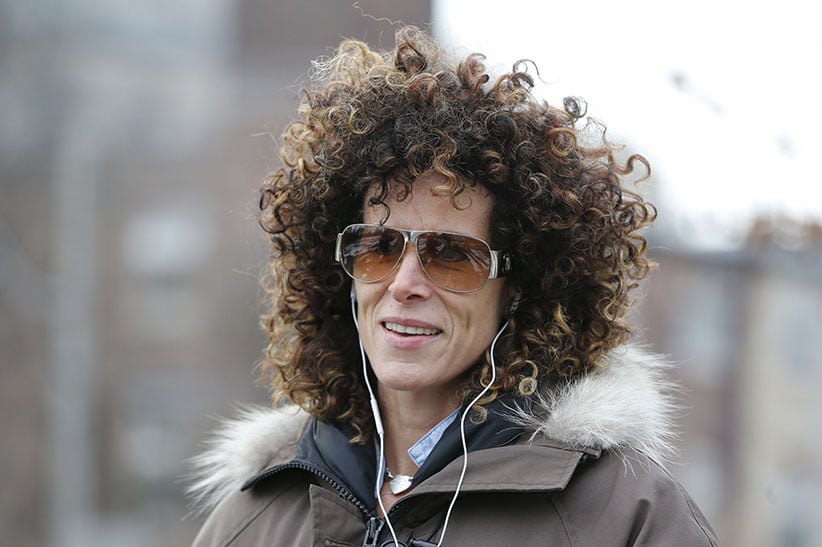
Update: In a retrial, Bill Cosby was convicted on all three accounts of aggravated indecent assault on April 26, 2018. On Sept. 25, 2018, he was sentenced to three to 10 years in prison.
As Bill Cosby was being formally charged with three felony counts of aggravated indecent assault in a courtroom in Elkins Park, Penn., last week, Andrea Constand, the woman who accused him of drugging and sexually assaulting her 12 years ago, was also the subject of media stakeout, this one outside her downtown Toronto condo. Photographs of the 42-year-old registered massage therapist wearing a Canada Goose jacket and sunglasses, earbuds firmly planted, corkscrew curls flying in the December breeze while walking her two poodles, were published internationally; in them, Constand gazes at the camera, an expression of good-natured, if inscrutable, defiance on her face.
When Constand came forward with the then-shocking allegation that Cosby sexually violated her in 2004 at his suburban Philadelphia house, neither the judiciary nor the public wanted to listen. Within weeks, Montgomery County, Penn., district attorney Bruce Castor Jr. announced charges would not be laid due to “insufficient credible and admissible evidence.” Cosby denied Constand’s allegations through his lawyer, who called them “preposterous.”
Constand wasn’t the first woman to accuse the man once enshrined as “America’s dad” of sexual misconduct. Several years earlier, 20-year-old actress Lachele Covington, a bit player on The Cosby Show, that wholesome TV staple that ruled airwaves between 1984 and 1992, had filed a police report in New York City alleging Cosby put her hand down his pants and exposed himself when the two were alone in his townhouse months earlier; the DA declined to prosecute, the story disappeared.
Constand, a Toronto native and former varsity basketball star, would prove to be Cosby’s nemesis; a rising tide of women saw their own experience in Constand’s allegations that Cosby befriended, then drugged and assaulted her; over the next decade, more than 50 came forward with a script as serially repetitious as a Liberty print. While the chorus of their voices alone was not enough to summon criminal charges (in many cases, the statute of limitations to file had run out), it did trigger a slow cascade of events that would see Cosby implicate himself and finally face criminal charges. If found guilty, he faces up to 10 years in prison.
Even before trial, expected later this year, Cosby’s public disgrace is near complete, though staunch defenders remain: the past year has seen him become a Hollywood pariah, dropped by powerhouse Creative Artists Agency as his professional projects collapsed; reruns of The Cosby Show have been taken off air; many of his honorary degrees have been revoked and he resigned from the board of trustees at Temple University, his alma mater.
Constand, who met Cosby while an employee of Temple, has not spoken publicly about the entertainer since her civil suit against him was settled out of court in November 2006. In a rare comment to the Toronto Sun this summer, Constand said the experience with Cosby “doesn’t define me” and was well behind her: “It’s in the past,” she said. “I have a whole other life, and I am happy.”
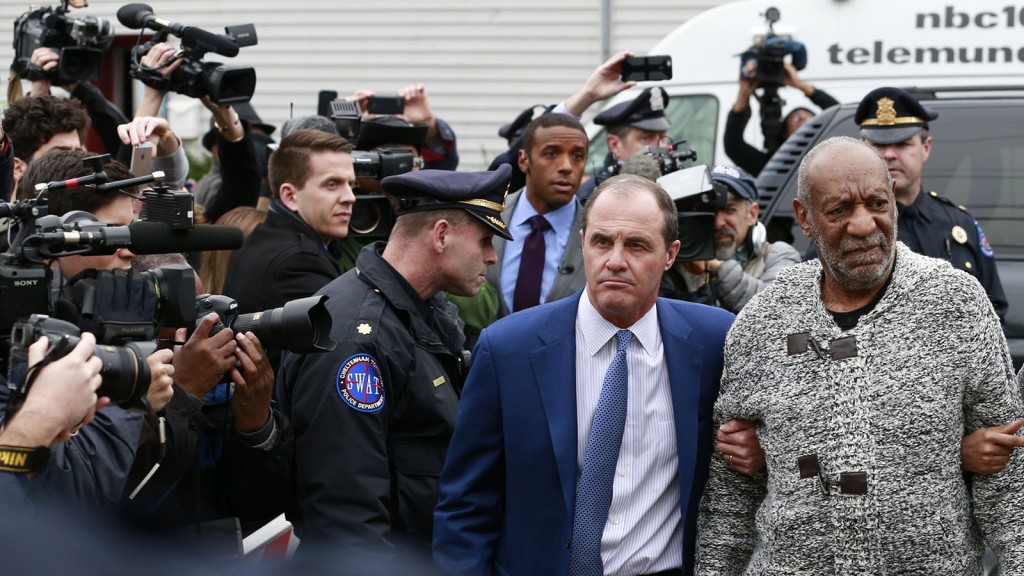
Last week’s charges, however, place Constand squarely in the lens again; as anyone familiar with sexual assault cases knows, the accuser too is on trial. Thus we have seen a return to the frenzy Constand experienced after she went to police in 2005—including reporters disguising themselves as floral deliverymen to gain access. Already, her family, friends and neighbours have been deluged with interview requests (her father graciously declined an interview with Maclean’s). Past attacks on her character and motives have led her to file several defamation suits over the years. An example of smear tactics was evident last week, when the New York Post plastered a photograph of Constand’s condo building on its front page, boasting in an “exclusive” that Constand “got enough money from the funnyman to score a posh apartment,” a comment that frames the settlement as extortion, not a legal agreement.
Although silent, Constand has not been without voice. On social media, where she goes by “Dre,” the six-foot-tall, lean, buff, gay woman presents as nobody’s victim, winning both praise and hateful comments. Facebook posts show her in the Arizona desert, arms covered with tattoos: among them #tellsomeone, a sexual assault awareness campaign, and the Rod of Asclepius, the symbol for healing. Her Twitter profile reads: “Athlete, Health Practitioner/Healing Arts. Self-Realized Truth Seeker. May your life be filled with the light and bliss of Gods [sic] presence.” Her tweets tend to the inspirational, focusing on holistic well-being, with quotes from everyone from Goethe to Paramahansa Yogananda to Oprah. A kickass spirit is also present, evident in a July 10 Roseanne Barr quote: “The thing women have yet to learn is nobody gives you power. You just take it.”
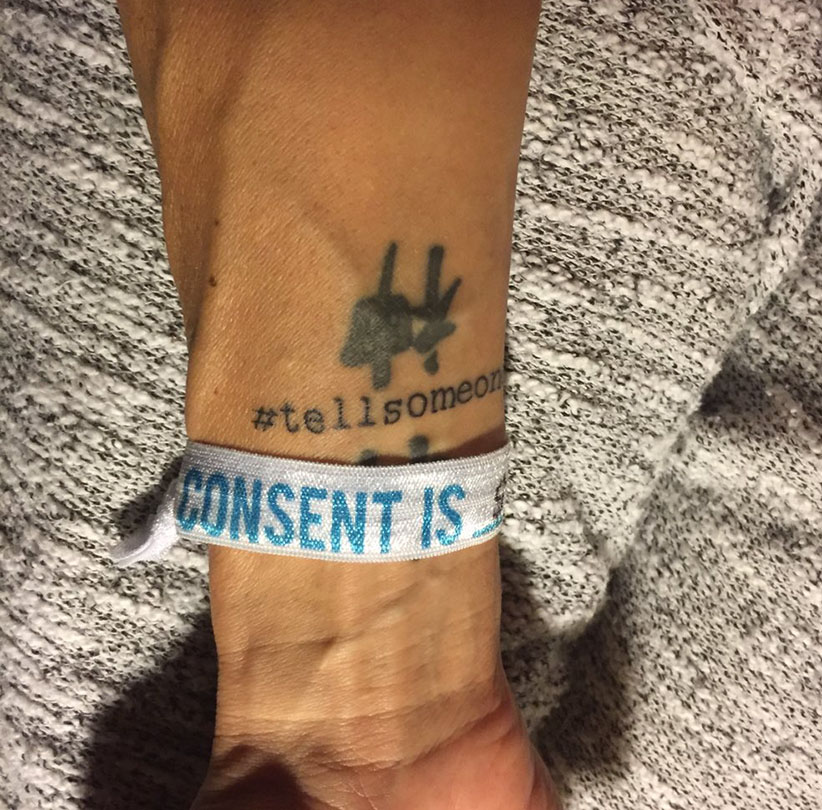
Why Andrea Constand was willing to come forward to accuse Bill Cosby of sexual violence when others did not may never be known. If one looks to her character, circumstance and timing, clues can be found. Like most of Cosby’s accusers, Constand was a young, attractive woman who saw him as a friend and mentor. Yet significant differences existed: then 28, she was almost a decade older than many of his accusers when they met Cosby. Her life, devoted to athletic pursuit and steeped in teamwork, existed beyond the entertainment industry; many of the women who later came forward were aspiring actresses and models. Constand also had support from a tightly knit family—her father, Andy, a massage therapist, her mother, Gianna, a medical secretary, and an older sister. The path that led Constand into Bill Cosby’s orbit also built personal confidence. She was the standout shooting guard for the Celtics basketball team at Albert Campbell High School in the eastern Toronto suburb of Scarborough, hailed by the Toronto Star as the “top female high school basketball player in Canada” in her final year. Courted by dozens of American colleges, she accepted a scholarship from the University of Arizona to play for the Wildcats—not because of the team’s championship prospects (it finished the previous year with a dismal 6-25 record) but because of the people. “I hit it off with the coach,” she told the Star in 1997. “The players made me feel comfortable.” Joan Bonvicini, then Wildcat coach, recalls being impressed by Constand from the get-go: “She’s very friendly, very outgoing, very hardworking,” she says, noting she was popular and “a great team player.”
Constand’s ambition to be the first Canadian in the WBLA was never realized; she represented Canada at the 1997 World University Games in Sicily before playing professionally for 18 months in Italy. She’d return to Toronto in the late 1990s, working at a Nike store and coaching for a teen basketball program before her friend Dawn Staley, then coach of Temple’s women’s basketball team, hired her as director of operations.
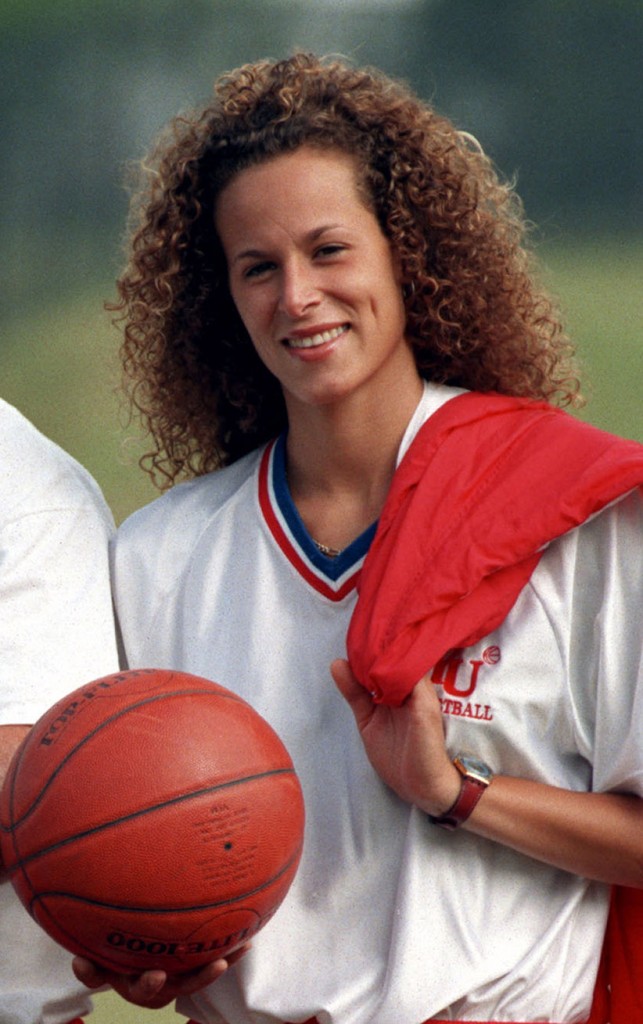 Cosby, then in his mid-60s, was a fixture on campus; a former college basketball player, he was in the Temple Athletics Hall of Fame as well as on its board of trustees. According to the affidavit filed on Dec. 30, Cosby acknowledged an early “romantic interest” in the 30-year-old Constand, who was 10 when The Cosby Show began its eight-year run. She saw the relationship as “a sincere friendship,” one that included socializing at Cosby’s houses in Philadelphia and New York, going out to dinner and events, and exchanging gifts. Constand, then considering a career in broadcasting, benefited from Cosby’s introductions and career advice. The entertainer also made two sexual advances, which she rebuffed and would ignore, Constand later alleged. According to her lawsuit, it was Cosby’s request to discuss her career that brought her to his house in January 2004. When she told him she was stressed due to work, Cosby allegedly provided three pills to help her relax; soon after she felt weak, “dizzy,” and unable to walk on her own. According to her lawsuit, Cosby led her to a sofa where he laid her down, then began sexually assaulting her while she was barely conscious. She woke at about 4 a.m., she said, with her clothing and underwear “in disarray.”
Cosby, then in his mid-60s, was a fixture on campus; a former college basketball player, he was in the Temple Athletics Hall of Fame as well as on its board of trustees. According to the affidavit filed on Dec. 30, Cosby acknowledged an early “romantic interest” in the 30-year-old Constand, who was 10 when The Cosby Show began its eight-year run. She saw the relationship as “a sincere friendship,” one that included socializing at Cosby’s houses in Philadelphia and New York, going out to dinner and events, and exchanging gifts. Constand, then considering a career in broadcasting, benefited from Cosby’s introductions and career advice. The entertainer also made two sexual advances, which she rebuffed and would ignore, Constand later alleged. According to her lawsuit, it was Cosby’s request to discuss her career that brought her to his house in January 2004. When she told him she was stressed due to work, Cosby allegedly provided three pills to help her relax; soon after she felt weak, “dizzy,” and unable to walk on her own. According to her lawsuit, Cosby led her to a sofa where he laid her down, then began sexually assaulting her while she was barely conscious. She woke at about 4 a.m., she said, with her clothing and underwear “in disarray.”
Constand returned to Canada three months later, in March 2004, moving in with her parents while training to be a massage therapist. Her relationship with Cosby remained cordial, according to a 2005 interview her parents gave to the Toronto Sun; Andrea took them to meet Cosby when he performed at Casino Rama in Orillia, Ont., in August 2004, they said. Soon after that, they reported, their daughter began having nightmares and became distant. In January 2005 Andrea told her parents Cosby had assaulted her, according to court documents, and they went to police. Her mother also called Cosby, who acknowledged sexual contact occurred and promised to cover any expenses related to therapy and to assist with her educational goals, offering to pay mother and daughter to fly to Florida to meet and discuss the matter.
His daughter’s training as a massage therapist would be a factor in her going public, her father told the Toronto Sun: “They teach about a code of ethics. She’s starting to understand that when you violate a person it’s not right.” He waved off the paper’s suggestion that money was a motivator: “She feels a sense of betrayal and feels justice has to prevail,” he said, adding, “We have to put a stop to this,” a comment that suggested he knew sexual assault rarely occurs as an isolated act.
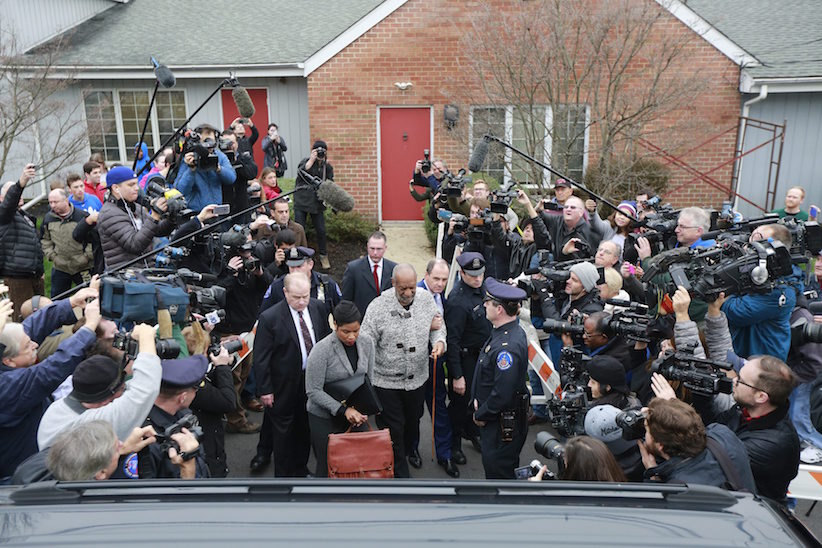
His words would prove prophetic. By the time Constand filed a civil complaint against Cosby three months later, 13 women, including lawyer Tamara Green, had come forward, becoming “Jane Doe” witnesses in court papers. Settling the Cosby civil lawsuit more than a year later was not the end of her legal battles. In 2006, Constand sued the National Enquirer and one of Cosby’s lawyers for defamation after the tabloid published an interview with Cosby in which he countered mounting sexual violence allegations by playing the victim himself. People were trying “to exploit” him because of his “celebrity status,” he claimed, contending his motives were pure: “Sometimes you try to help people and it backfires on you and then they try to take advantage of you.”
Cosby could have had the last word, despite other women coming forward, had two men not come forward years later to charge Cosby with hypocrisy, and reignite focus on the rape allegations. The first salvo, in October 2014, came when comedian Hannibal Buress called Cosby out for instructing African-Americans how to behave, in a stand-up routine that went viral: “Yeah, but you raped women, Bill Cosby,” Buress taunted. In the ensuing maelstrom, even more women came forward and Cosby faced public protest as people boycotted and picketed his comedy tour, which took him to southern Ontario in January 2015. He mocked the allegations against him in London, Ont., where he told one woman in the audience: “You have to be careful about drinking around me,” a comment that elicited gasps, claps and laughter.
Then, in July 2015, federal judge Eduardo Robreno cited Cosby’s public-scolding persona to explain why he agreed to unseal court filings of Constand’s civil suit: “The stark contrast between Bill Cosby, the public moralist and Bill Cosby, the subject of serious allegations concerning improper (and perhaps criminal) conduct, is a matter as to which the [Associated Press]—and by extension the public—has a significant interest,” he ruled. Those transcripts revealed Cosby boasting of a more explicit sexual activity with Constand, including “digital penetration,” than she recalled in her initial police report; he also admitted he bought Quaaludes to give to women he wanted to have sex with as well as offering payoffs to his accusers. He said he gave Constand 1½ tablets of the antihistamine Benadryl, enough to put her to sleep “right away,” then had sexual contact knowing she wouldn’t be fully conscious. He interpreted her silence as consent, he said, boasting: “I think I’m a pretty decent reader of people and their emotions in these romantic sexual things, whatever you want to call them.”
The statements allowed Risa Vetri Ferman, then Montgomery County DA, to reopen the investigation. Cosby’s admission shifted the charge from a misdemeanour with a two-year statute of limitations to aggravated indecent assault with a 12-year limitation due to run out in January 2016. Investigators were sent to Toronto to reinterview Constand.
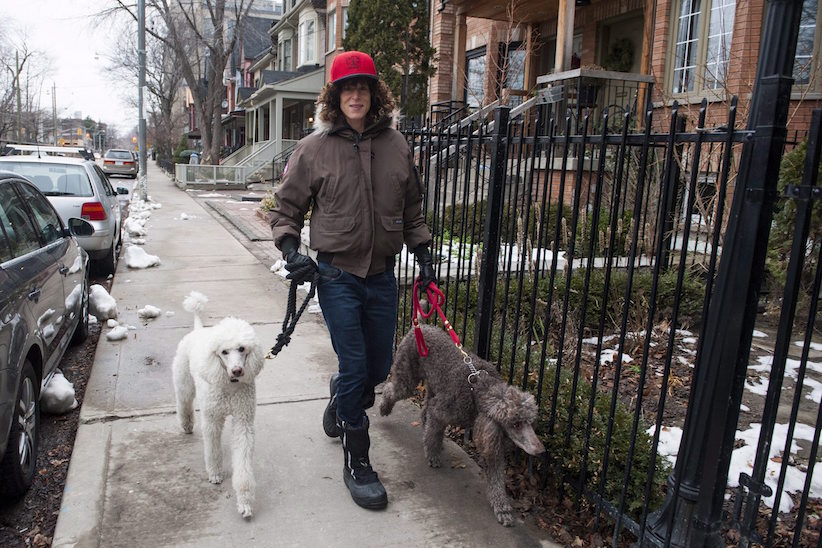
Ferman, whose career as a prosecutor focused on sexual assault and domestic abuse cases, was well-acquainted with rules of evidence in Pennsylvania that allowed the state to introduce allegations brought by the other women, even if they fell outside prosecutable time limits, as long as they establish a mode of operation. As an assistant DA, Ferman had been part of the successful 1997 prosecution of schoolteacher John Carroll, calling three witnesses who detailed decades-old assaults to show the molestation of a school boy was part of a larger pattern of behaviour.
By the time the case was reopened, Constand had established a massage practice that specialized in services for people with cancer and other medical diagnoses. Friends speak of her joie de vivre. Christine Chanter, a registered massage therapist who met Constand four years ago when they worked together, calls her “a very much ‘the glass is half-full, if not more,’ type of person.” Chanter was shocked to learn, years after meeting her, that Constand was involved in the Cosby allegations: “I think that when you’ve had something really cataclysmic happen, many people wear their war wounds.” That isn’t Constand, she says. “When I found out it was the same person on the news, I thought, ‘Wow, she’s a really amazing person.’ ” Former Wildcats coach Bonvicini recalls Constand visiting the University of Arizona in 2008 and giving a generous donation to the basketball program. “She seemed very much at peace,” she says.
Through it, Constand has emerged an advocate for sexual assault and consent awareness, wearing a “consent is” wristband and tweeting support for Ontario Premier Kathleen Wynne’s sex-education program. She attended a “Voices Carry” fundraising concert for victims of sexual assault in Kitchener, Ont., the night Cosby performed in the city. All the while, her social media accounts have been monitored by Cosby’s lawyers, who only this summer accused Constand of violating her confidentiality agreement with Cosby after she sent two tweets— “YES” and “SIR”—after Judge Robreno unsealed the court documents. Constand countered she was responding to news about gay marriage. Signs indicate she wants to be heard: in July, she asked a federal judge in Philadelphia to void the terms of her confidentiality agreement with Cosby (her lawyer Dolores Troiani tells Maclean’s the case is pending). She also made a legal filing that acknowledged she is gay, and was involved with a woman at the time of the alleged assault; Cosby “did not realize [Constand] was gay until the police told him,” it noted, a knock at Cosby’s skill as a “reader” of female consent. (Legal experts expect Cosby’s lawyers to pillage through Constand’s past to find old boyfriends to prove she could be bisexual.)
Constand filed another suit in October, this one against former Mongomery County DA Bruce Castor Jr., who she claimed defamed her when he was running for his old job as DA and was attacked by his opponent Kevin Steele for his handling of the Cosby case. Castor’s dismissive claims about Constand’s statements to police back in 2005 resulted in her claiming she had been rendered “collateral damage” to his political ambitions. (In the end, Steele won the election; the defamation case is ongoing.)
For now, Constand has Twitter. In December, she tweeted support to Beverly Johnson, the model who alleged Cosby drugged her in the 1980s, after Johnson was added to the list of seven women Cosby is countersuing for defamation. (The tweet was later deleted.)
Cosby, who did not enter a plea last week and was released on $1-million bail, is scheduled back in court on Jan. 14. “Good luck, Mr. Cosby,” the judge told him as he left. “Thank you!” he shouted back. The next day, Constand called for calm, tweeting: “Let’s all stay classy plz! That includes anybody who may be inserting their opinion as to whether anything was fully investigated period.” For now, at least, hers remains the last word.
— With Meagan Campbell